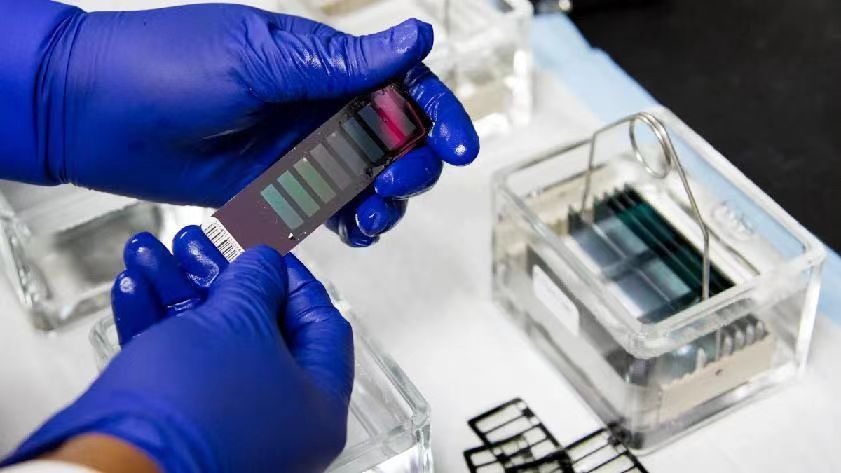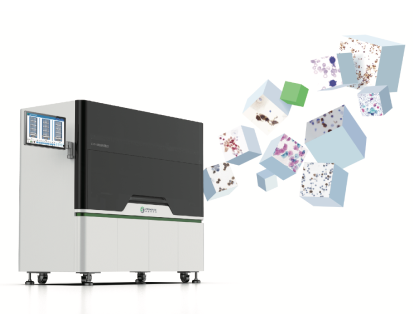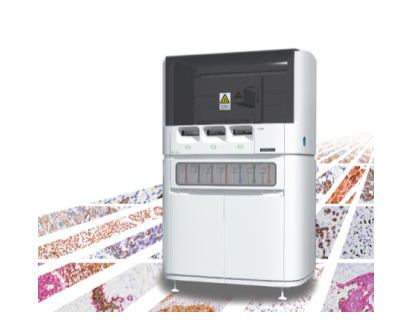Solving the Enigma: Molecular Diagnostics Challenges Decoded

By admin
Molecular diagnosis is an important part of modern medicine because it uses genetic and molecular markers to correctly identify illnesses. Taking on the problems in this area is important for making medical methods better. It was thought that the market for genetic testing was worth 5 billion in 2005, but it’s expected to be worth 19.66 billion by 2024. As progress is made, problems like contamination and high prices will be solved, and diagnostic methods will become more effective.
Challenges in Molecular Diagnostics
Contamination Issues
Contamination poses a significant challenge in molecular diagnostics. Amplification reaction contamination can lead to erroneous results, affecting the accuracy of tests. To lessen this problem, labs must follow strict rules for how to handle and process samples. To keep samples from getting contaminated with each other, it is important to follow the right cleaning steps and keep the tools in good shape.
Cost and Labor Intensity
The high costs of molecular methods and the labor-intensive nature of processes present obstacles for laboratories. Because of these problems, creative solutions are needed to make things run more smoothly and save money. Using efficient tools and automatic systems can make the best use of resources, which can lower the cost of diagnostic processes and make them easier to do.
Standardization and Quality Control
Ensuring standardization across all laboratory practices is crucial for maintaining the quality and reliability of test results. Diagnostic results can be wrong or inconsistent when there aren’t any standard procedures in place.
Laboratories must prioritize internal quality controls while also seeking opportunities for external quality controls to validate their testing procedures against established benchmarks.
Addressing Laboratory Challenges
Implementing Laboratory Information Systems
Implementing Laboratory Information Systems (LIS) is essential for modernizing diagnostic processes and enhancing operational efficiency in molecular diagnostics labs. Benefits of Modern LIS include improved data management, streamlined workflows, and enhanced communication between laboratory departments. By adding a strong LIS, labs can make the best use of their resources and cut down on the time it takes to get test results.
Case Studies
To illustrate the impact of implementing modern LIS in molecular diagnostics, consider the case of a large hospital laboratory that transitioned to an advanced information system. Because of this update, there were a lot fewer mistakes reported and important tests were completed much faster. LIS not only improved the general performance of the lab, but it also improved patient care by making sure that findings were made quickly and correctly.
Overcoming Pre-Analytical Errors
Addressing pre-analytical errors is crucial to maintaining the integrity of molecular diagnostic tests. Proper specimen collection techniques are vital to ensure sample quality and prevent contamination. Laboratories need to set clear rules for getting samples, such as the right way to store them and move them. Labs can cut down on mistakes and make test results more reliable by stressing tight adherence to pre-analytical standards.
Transportation and Storage Practices
Effective management of specimen transportation and storage is paramount in molecular diagnostics. Laboratories need to come up with standard ways to package, name, and keep track of samples while they’re in travel. To keep samples intact until they are analysed, it is important to keep them in the best possible storage settings, such as keeping the temperature stable and controlling the sample’s movement. Labs can improve the accuracy and regularity of diagnostic tests by fixing problems with how samples are moved and stored.
Regulatory Compliance
Navigating the complex landscape of regulatory requirements is a key challenge for molecular diagnostics laboratories. Ensuring Quality and Safety involves compliance with various regulatory bodies to maintain industry standards and patient safety. To stay in line with the rules, labs need to keep up with changes to them, do regular checks, and put in place quality control measures. Labs can show their dedication to providing high-quality testing services and gain the trust of stakeholders by putting regulatory compliance first.
Navigating Multiple Regulatory Bodies
The fact that there are many governing bodies makes it hard for labs that do molecular testing to follow the rules. Different groups, like the FDA, CDC, CLIA, and state health offices, have different rules that labs have to follow. To make complete compliance plans that work in a variety of testing settings, it’s important to know the exact standards of each regulatory body.
Ensuring Quality and Safety
Maintaining quality standards while ensuring patient safety is paramount in molecular diagnostics. To make sure that the results are correct, labs must use strict quality control measures throughout the whole testing process. Following set safety rules, like properly throwing away trash and keeping tools in good shape, protects both lab workers and patients from possible risks that come with diagnostic processes.
Future Directions in Molecular Diagnostics
Technological Advancements
Automation in Molecular Diagnostics
When it comes to genetic tests, automation is changing everything by making testing faster and more accurate. Manufacturers are always coming up with new tests and tools that can find molecular markers more accurately, more sensitively, and more quickly. Adding computer systems speeds up the process of getting test results, makes tasks more efficient, and lowers the chance of mistakes made by people. When labs use automated systems, they can better handle their data and talk to each other across departments, which leads to more accurate diagnostic results.
Cost-Effective Solutions
To keep quality high while making molecular tests more accessible, we need options that don’t break the bank. Point-of-care molecular testing and quick molecular tests are examples of advances that make testing easier to get and faster. This shortens the time between diagnosis and treatment start. Laboratories can get the most out of their resources by using low-cost tools that make operations run more smoothly without lowering the level of diagnostic services. Using artificial intelligence (AI) and machine learning algorithms together also makes it easier to understand data and make accurate diagnoses, which ensures accurate results for patient care.
Global Implementation
Addressing Logistical Challenges
Global implementation of molecular diagnostics faces logistical challenges such as importation restrictions, limited technical support access, and diverse regulatory requirements across regions. To get around these problems, labs need to come up with standard ways to package, name, and keep track of samples while they’re in travel. By solving practical problems in a smart way, labs can make sure that medical tests can be sent anywhere in the world without any problems and still follow international rules.
Expanding Access to Testing
Increasing access to genetic tests is important for helping people who aren’t getting enough care and for making healthcare better around the world. Laboratories are very important for making things more accessible because they use low-cost methods that make testing easier. Putting in place point-of-care genetic testing labs in remote areas makes it easier to find diseases early and take action right away. Through smart relationships and community outreach programmes, labs make testing easier for more people, which helps public health efforts to lower the number of diseases around the world.
Continuous Education and Training
Training Programs for Scientists
Scientists need to keep learning and training in order to have the most up-to-date information and skills in molecular testing. Laboratories should pay for thorough training programmes that cover new technology, following the rules, and good quality control methods. By giving scientists ongoing chances to learn, labs make sure that their staff is always up to date on the best ways to do medical tests.
Keeping Up with Advances
Staying informed about continuous technological advancements is critical for laboratories to deliver accurate and efficient diagnostic services. New tools made by manufacturers make it easier to find molecular markers by improving their sensitivity, precision, and efficiency. Labs need to make it a priority to keep up with these changes so they can use cutting-edge technologies that make diagnoses more accurate while also making the best use of their resources. Through programmes that encourage constant learning, labs can keep up with changes in technology and meet the changing needs of modern healthcare service.
Since its founding in 2010, Celnovte has been a high-tech company that focuses on the study, creation, production, and distribution of precise tumour detection tools and materials. Celnovte wants to offer complete solutions for tumour pathology diagnosis products. They are especially interested in early screening, accurate detection, drug companion, and treatment tracking of tumours. The company has created a full industrial chain that includes research and development, production, sales, and service. This has made it a top player in this field both in the United States and around the world.
Molecular testing is one of the main areas where Celnovte really shines. They have a section called Molecular Diagnostics that is solely responsible for creating new technologies and goods. A variety of immunohistochemistry tools, such as primary antibodies, secondary antibody detection methods, and immunohistochemistry quality control products, have been successfully created by this section. These items are made to give you good staining results, and they come with fully automatic staining platforms to back them up. Additionally, Celnovte has also developed the Super-ISH super chromogenic in situ hybridization technology, which allows for the detection of RNA using the HRP-DAB chromogenic system. Both clinical and pathological contexts can benefit from this approach, since it helps to identify tissue damage induced by EBV infection. Overall, Celnovte’s Molecular Diagnostics section wants to make the field of tumour pathology analysis better by constantly researching, developing, and coming up with new ideas.
For correct identification, molecular diagnostics has changed the way diseases are found by giving doctors very sensitive, specific, and quick tools. These tools are very important for finding cancer early by finding biomarkers related to cancer early on.Molecular tests help us learn more about diseases at the genetic and molecular levels. This lets us make more effective treatments and improve patient results.











